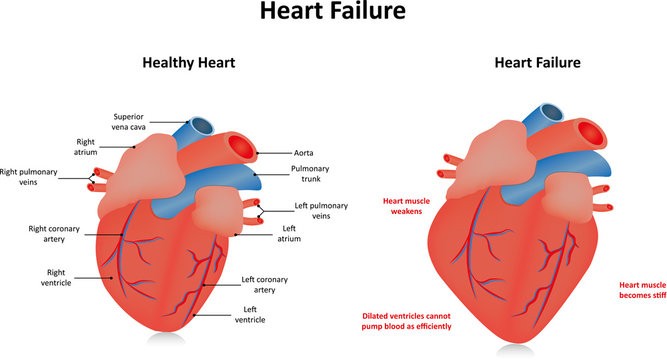Hypertension, or elevated blood pressure, is a prevalent yet severe health condition that impacts millions of individuals worldwide. It is essential to comprehend the causes and dangers associated with high pressure in order to preserve one’s health and prevent potential complications. The following article will examine the factors that contribute to high blood pressure, examine the health risks it poses, address strategies for managing and monitoring blood pressure levels, and emphasize the significance of lifestyle changes and medical interventions in reducing high blood pressure. Individuals can take proactive measures to protect their health and well-being by acquiring a comprehensive comprehension of elevated pressure.
Introduction to High Pressure
Have you ever experienced the sensation that your existence is similar to a pressure cooker? Yes, your body can also experience this sensation when it is subjected to excessive pressure. We will explore the definition of high pressure and the importance of comprehending its causes.
Definition of High Pressure
When the force of blood against the walls of your arteries is consistently excessive, it results in hypertension, or high blood pressure. This can result in severe health complications if left untreated, as it can exert pressure on your heart and blood vessels.
Common Causes of High Blood Pressure
High pressure can emerge unexpectedly, much like a test that you neglected to prepare for. A diet that is high in sodium and lipids, a lack of physical activity, smoking, and extensive alcohol consumption are among the most prevalent causes. It can also be influenced by underlying health conditions, age, and genetics.
Factors Contributing to High Pressure
Consider high pressure as a multifaceted composition that requires numerous components. Its development can be influenced by a variety of factors, such as your familial history, stress management, and diet.
Nutrition and Diet
Consuming an excessive amount of processed munchies and rapid food can elevate one’s blood pressure. Maintaining a balanced diet that is abundant in fruits, vegetables, and whole cereals, as well as monitoring your sodium intake, can assist in preventing high blood pressure.
Anxiety and Stress
Stress is akin to a silent assassin that can elevate your blood pressure without your awareness. Maintaining a healthy stress level can be achieved by engaging in activities such as meditation, exercise, or spending time with loved ones.
Genetic Predisposition
High pressure occasionally runs in the family, much like a mediocre heirloom. You may be at an increased risk of developing hypertension if your relatives have experienced trouble with it. Taking proactive measures to manage your stress can be facilitated by understanding your family history.
Health Risks Associated with High Blood Pressure
High pressure is not merely a numerical exercise; it can result in severe repercussions if left unattended. Let us examine the potential health hazards associated with allowing one’s stress to escalate.
A medication called Losar 25 mg Tablet is used to treat heart failure and excessive Hypertension. Reducing Hypertension may assist shield against heart attacks and strokes in the future. Patients with diabetes may maintain renal function with this medication as well. The medication is a good option for people who are uncomfortable because of high Hypertension conditions.
Heart Disease and Hypertension
Heart disease, heart attacks, and heart failure can result from persistently elevated Hypertension, which can put a strain on the heart. Controlling one’s Hypertension is essential for maintaining a healthy heart.
Neurological Complications and Stroke
Blood vessels may be damaged and stroke risk may be elevated when Hypertension spikes. High pressure can also have an impact on your brain health, potentially resulting in cognitive decline and other neurological issues.
Overseeing and Supervising High-Pressure Situation
Are you prepared to assume responsibility and restore your blood pressure to a healthy level? It is essential to be proactive and make informed decisions when it comes to monitoring and managing one’s blood pressure.
Methods of Pressure Monitoring
Similar to measuring your body’s temperature, routine blood pressure readings provide a snapshot of internal conditions. Regardless of whether you utilize a personal monitor or consult with your healthcare provider, it is crucial to monitor your blood pressure.
Recommendations for Lifestyle Changes
There are numerous lifestyle modifications that can be implemented to naturally reduce Hypertension, including increasing physical activity and altering one’s nutrition. Do not hesitate to seek the assistance of healthcare professionals to develop a personalized plan that is suitable for your needs.
Maintaining a Healthy Diet and Engaging in Physical Activity
So, you know that container of Cheetos you’ve been admiring all day? It is possible to disregard that. Instead, choose a diet that is well-balanced and includes a variety of fruits, vegetables, and whole cereals, as well as a small amount of lean proteins and healthy lipids. And don’t neglect to get up and move! Even a vigorous walk or a dance party in your living room can have a significant impact on your blood pressure; it is not exclusive to gym enthusiasts.
Strategies for Stress Management
Stress has a tendency to infiltrate our lives in a similar manner to that one companion who consistently arrives without invitation. However, there is no need for concern Deep breathing, yoga, meditation, or simply chuckling at cat videos on the internet are all effective methods for demonstrating the exit door to tension. Discover what is most suitable for you and say farewell to tension and its high-pressure entourage. The website is a great place to buy any kind of medicine.
Medications Available
Occasionally, life presents us with unexpected obstacles, such as elevated blood pressure. However, do not be concerned; there are medications available that can assist in maintaining its control. Your physician can prescribe the appropriate medication to alleviate excessive blood pressure, including beta-blockers and diuretics. In this high-pressure situation, it is crucial to adhere to your physician’s instructions; they are the true MVPs.
A medication called Tablet is used to treat heart failure and excessive Hypertension. Reducing blood pressure may assist shield against heart attacks and strokes in the future. Patients with diabetes may maintain renal function with this as well. The medication is a good option for people who are uncomfortable because of high blood Pressure conditions.
Surgical interventions
In certain instances, a more hands-on approach may be necessary to manage high blood pressure. Blood flow can be restored and pressure can be reduced through surgical interventions such as angioplasty or stent placement. Although it may appear intimidating, modern medicine is capable of performing remarkable feats – just ask your genial neighboring surgeon!
Damage to the kidneys
Your kidneys are the unsung champions of your body, until elevated blood pressure arrives. These essential organs can be severely damaged by untreated high pressure, resulting in kidney injury that is beyond the capacity of even the most skilled plumber. So, be kind to your kidneys and maintain a healthy blood pressure.
Visual impairments
What are those adorable, diminutive eyeglasses that you don to project an air of sophistication? Uncontrolled hypertension may necessitate the acquisition of a more robust pair of. The microscopic blood vessels in your eyes can be damaged by high pressure, which can jeopardize your vision. Therefore, it is advisable to monitor your pressure levels in order to preserve your eyesight, unless you are aiming for a fashionable pirate appearance.
In summary, it is imperative to acknowledge the importance of elevated pressure and its prospective impact on health in order to foster overall well-being. In order to effectively manage and reduce the risks associated with high blood pressure, individuals can adhere to medical recommendations, monitor blood pressure levels, and implement lifestyle modifications. By proactively addressing high pressure, individuals are able to lead healthier lives and reduce the likelihood of complications in the long term.


